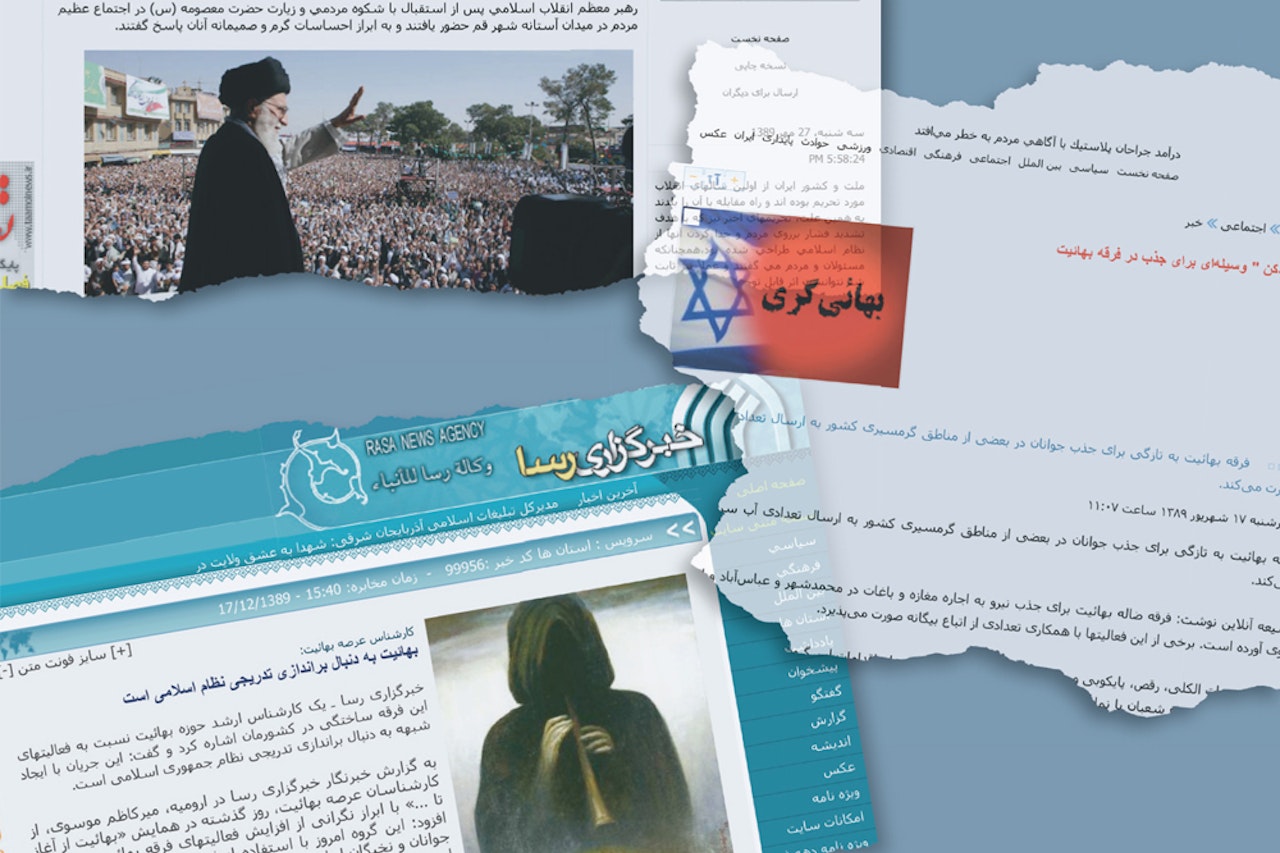
NEW YORK, UNITED STATES — In a wide-ranging media campaign that has gone largely unnoticed outside of Iran, hatred and discrimination are being systematically stirred up against the country's 300,000-member Baha'i minority.
In a report released today, the Baha'i International Community documents and analyzes more than 400 press and media items over a 16-month period, that typify an insidious state-sponsored effort to demonize and vilify Baha'is, using false accusations, inflammatory terminology, and repugnant imagery.
[Read the full report](http://dl.bahai.org/bwns/assets/documentlibrary/861_Inciting-Hatred_BIC Report_Web_111024.pdf) (PDF)
"This anti-Baha'i propaganda is shocking in its volume and vehemence, its scope and sophistication," said Bani Dugal, Principal Representative of the Baha'i International Community to the United Nations.
"It's all cynically calculated to stir up antagonism against a peaceful religious community whose members are striving to contribute to the well-being of their society," she said.
Titled Inciting Hatred: Iran's media campaign to demonize Baha'is, the report's main conclusions are:
• anti-Baha'i propaganda originates with – and is sanctioned by – the country's highest levels of leadership, including Supreme Leader Ayatollah Ali Khamenei, who gave a highly discriminatory speech in the holy city of Qom a year ago;
• the campaign spurns international human rights law and norms, including a precedent-setting resolution passed earlier this year at the United Nations Human Rights Council that specifically condemns and combats the negative stereotyping and incitement to hatred of religious minorities;
• Baha'is are branded as "outsiders" in their own land and as enemies of Islam in a manner that is clearly calculated to provoke the religious sensibilities of Iranian Shiite Muslims;
• the campaign aims to deflect attention away from calls for democracy in Iran by using Baha'is as an all-purpose "scapegoat" – and, in so doing, to smear those who oppose the government as well as human rights campaigners as Baha'is, "as if that were the most heinous crime."
• the authorities disseminate ludicrous conspiracy theories including that foreign broadcasters, in particular the British Broadcasting Corporation (BBC) and Voice of America (VOA), are controlled by or under the influence of Baha'is because they report stories about human rights violations in Iran;
"The diverse content of these attacks demonstrates tremendous effort and commitment of resources by the Islamic Republic," says the report.
"Many attacks are built on gross distortions of Baha'i history; some attempt a strategy of guilt by association through lumping Baha'is together with completely unrelated groups – such as 'Satanists' or the Shah's secret police; still others deploy a tactic of connecting Baha'is with 'opponents' of the regime, which allows the Government to discredit both the Baha'is and its opponents in a single transaction. The campaign makes extensive use of the World Wide Web, and often uses graphic images that portray Baha'is as fiendish ghouls or agents of Israel."
Bani Dugal said the demonization of Iran's Baha'i community is a matter that deserves the attention of governments, international legal institutions, and fair-minded people everywhere.
"The campaign not only clearly violates international human rights law," she said, "it also utterly contradicts Iran's long-standing claim at the UN and elsewhere that it is working to support measures to outlaw or condemn hate speech directed against religions or religious followers."
"The parallels between the campaign of anti-Baha'i propaganda in Iran today and other state-sponsored, anti-religious campaigns of the past are undeniable. History shows us that such campaigns are among the foremost predictors of actual violence against religious minorities – or, in the worst case, precursors of genocide.
"It is time for Iran to be told that such egregious violations of international law and norms cannot be tolerated," said Ms. Dugal.
Special Section – Inciting Hatred: Iran's media campaign to demonize Bahá'ís**
A Special Section of the Baha'i International Community United Nations Office website presents the full report, Inciting Hatred: Iran's media campaign to demonize Bahá'ís* in English and Persian, as well as an online only 197-page appendix that summarizes each of the 400-plus documents or articles that were collected during the period of this survey, from 17 December 2009 to 16 May 2011.*
(Full report)[http://dl.bahai.org/bwns/assets/documentlibrary/861_Inciting-Hatred_BIC Report_Web_111024.pdf] (Adobe Acrobat 1.55MB)
"Closed Doors: Iran's Campaign to Deny Higher Education to Baha'is" - Special Section